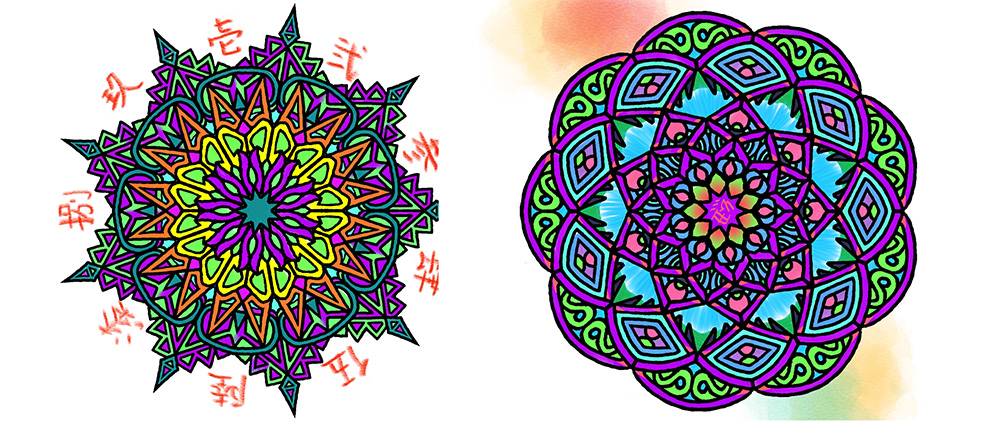Will the Mind Heal Before the Machines Surpass Us?
As someone who lives with bipolar disorder and ADHD, I often wonder about the future. Will mental health treatments ever catch up to the speed of technological progress? While machines evolve rapidly toward the Singularity, my mind still struggles to find ease. This essay is a letter to that uncertain future.
— Reflecting on the future as someone living with mental illness
Masaya Otani|2025.07.02|Category: ENGLISH
One evening, I was listening to a rakugo performance by Tatekawa Danshi on YouTube while reading a 1968 essay by Shinichi Hoshi.
Both men have long since passed away, and yet—through sound and text—it felt as though I was conversing with the voices of the dead.
It may sound sentimental. But perhaps you’ve felt it too,
that strange moment when the words of the past touch the present.
Or when you’re writing as if sending a letter to your future self.
Technology evolves. But what about the healing of the heart?
I often think about the future—
especially how far medicine and technology might evolve.
They say the Singularity will come in 2045,
when artificial intelligence surpasses human intelligence.
And with the rapid pace of progress,
it doesn’t feel so far-fetched anymore.
But by then…
Will my mind have healed?
Living without a cure
I’ve been diagnosed with bipolar disorder and ADHD.
For over a decade, I’ve taken medications, adjusted my lifestyle,
and relapsed more times than I can count.
Even now, I’m on prescribed meds.
But dramatic improvement is rare.
Mood swings.
Hyperfocus.
Fatigue.
Insomnia.
They still show up in my daily life,
and I quietly endure them.
Psychiatric medication isn’t like cold medicine.
There’s no “take this and you’re cured.”
Only “keep taking this and keep going.”
Sometimes, that fact alone feels like despair.
When psychiatry feels like it’s falling behind
Technology moves fast.
Genomic editing, nanomachines, diagnostic AI…
But psychiatry remains slow in comparison.
We still rely heavily on talk therapy and drugs—
and true “cures” are rare.
In conditions like bipolar disorder or ADHD,
which are chronic and deeply individual,
this lag is even more apparent.
Mental illness is often entangled with
the very structure of our personality.
So what does it mean to “heal” the mind?
Is it even possible to rewrite a personality through science?
Every time I face the limits of medicine,
these questions come back to me.
Small methods, toward a future
Even if full recovery isn’t possible,
there are ways to live a little more gently.
For me, one key has been regulating my body clock.
Going to bed and waking up at the same time every day—
something that simple can smooth out emotional waves.
It can ease anxiety, just a little.
Lately, I’ve also added meditation.
By focusing on the breath,
the noise within quiets, even if just for a moment.
That moment is enough.
It means something.
“I’m not completely okay yet,
but I’m building ways to live within myself.”
That, to me, is both self-regulation
and a tiny hope for future psychiatry.
When machines surpass us
In the era of the Singularity,
AI might be able to mimic a person entirely.
Maybe one day,
an AI bearing my voice, memories, and patterns of thought
will converse with someone in my place.
But what I truly wish for
is this:
That more beings—human or otherwise—will understand suffering.
Even if we never “get better,”
we can still live alongside others.
Even in imperfection, we are not invalid.
If my story, my words,
can become a bridge to such a future,
then it will have been worth writing this.
In closing
This essay was originally written in 2018,
and rewritten here in 2025.
What I see has changed,
but one thing remains:
I want to keep imagining the future,
even while living with difficulty.
If any of these words reach your future—
perhaps it means
we were part of the same time after all.
✴︎ Written by Masaya Otani
Translated from the Japanese original, 2025
#MentalHealth #Singularity #BipolarDisorder #ADHD #MasayaOtani
Originally written in Japanese (2018), this essay was revisited and translated in 2025.
May it reach someone, somewhere, who also wonders about the healing of the human mind.
📩 For inquiries or personal messages, feel free to reach me at:





